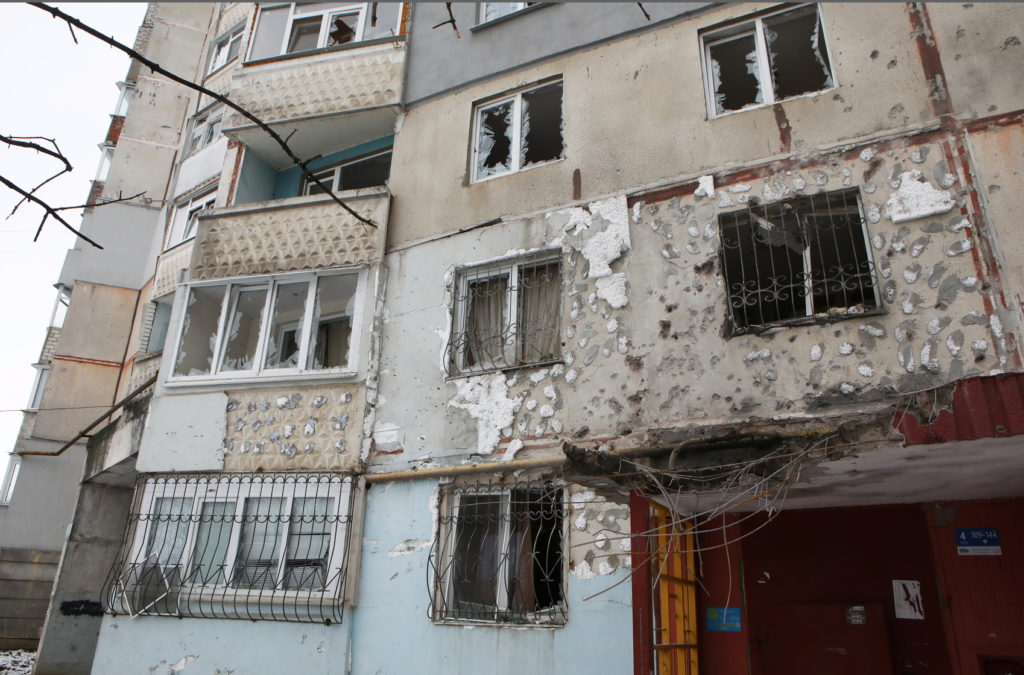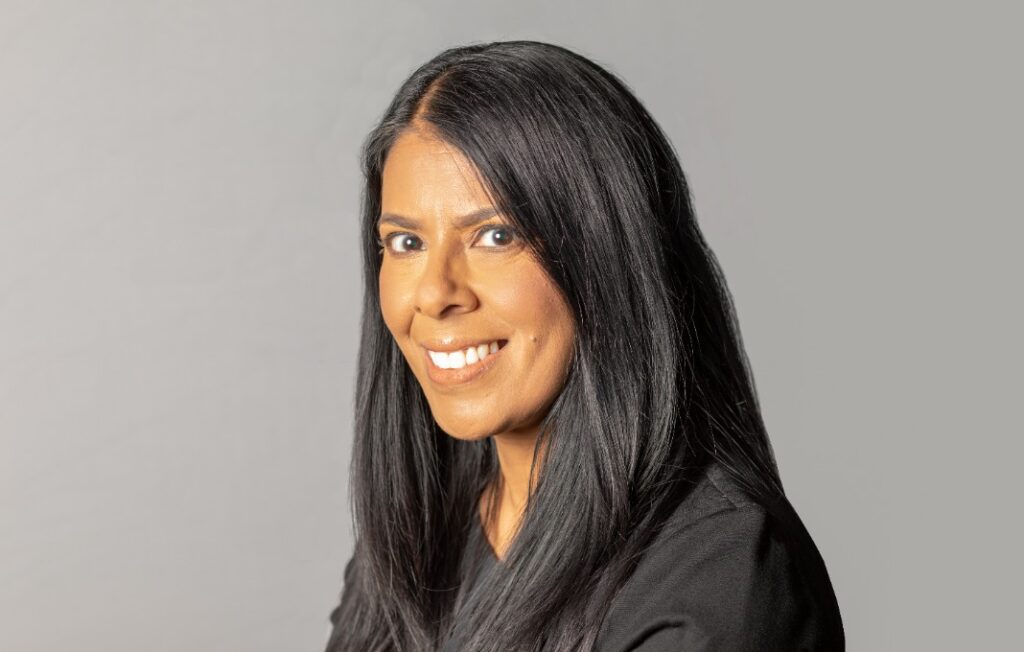Every CEO, every company, deals with crisis. It’s just part of the job. But an unfortunate few face the kind of challenge now confronting Vladimir Gendelman and the team at his small company.
He’s CEO of Company Folders, a fast-growing Detroit-based provider of highly-designed presentation folders. Of his 16 people, seven are in Ukraine—and they’re all on the run with their families, trying to stay one step ahead of a war few thought would ever happen.
Having employees in Ukraine was a no-brainer for Gendelman. He grew up in the region when it was part of the Soviet Union, fleeing to America in 1989 to leave behind a world without choices, where “any house you go to has the same wallpaper.”
In America, he found a world of choice—and opportunity. He founded his company in 2003, building it around the idea of infinite design possibilities for customers, all with friendly, fast service. It flourished. When it came to staffing, Ukraine seemed an obvious choice. “I figured, if I’m going to hire somebody, if I could give back to where I came from…and help any of those people get ahead and make a little bit of money, then why not?”
Over the years it proved to be a winning strategy. The people he hired then still work for him now. He’s watched them go from single to married to married with kids and watched the kids grow up, too. All via video conferencing.
Then, two weeks ago, Vladimir Putin’s forces crashed the border and turned the country into a war zone. The city of Kharkiv, hard by the Russian border and home to four of his people, was an immediate target. His terrified staff and their families were shelled, shot at and witnessed unimaginable horrors before they finally made their way out of the burning city.
Gendelman’s been talking them through all of it, while also rallying drives for humanitarian and front line aid, while also keeping his business going. There’s no huge support team, no multinational consultant firm at his elbow. Just Gendelman, his small staff and a lot of time on WhatsApp. It’s a near-impossible situation, and Gendelman is doing the best he can. “Listen, they’re my people,” he says. They’ve been with me for so long, how could I not? They’re like family.”
I talked with Gendelman on Wednesday, March 9. Here’s a transcript of the conversation, edited for length and clarity:
What are you hearing from your employees in Ukraine right now? What are they telling you?
We have seven employees in Ukraine. Four of them were in Kharkiv [near the Russian border] and one of them was able to leave early on with some friends in a car. Three of them stayed behind through the whole bombing, through the devastation. All three of them were able to leave about Friday or Saturday.
While they were in Kharkiv, we would send messages back and forth, mostly on WhatsApp, even though we also use Slack and Skype and Facebook Messenger, and we would also talk on the phone through WhatsApp. As I talked to them, I heard rockets coming down. I heard destruction going on everywhere. It was really scary for them. They’re there with their families and kids and wives in apartment buildings. There are no bomb shelters.
People would stay home and when the sirens sounded to notify everybody [of a bombardment] they would go in the hallway and they would lay on the floor, because that’s the room that has no windows, which is important in case of shattered glass.
So, now they are with their families, with little kids, laying on floors and trying to deal with it that way, which was absolutely horrible and scary. They’d look out the window and they would see debris and things. They would see dead people on the street. They finally left.
Are they still in the country at this point?
One of them was able to cross the border yesterday and get into Moldova. As of today, he’s in Romania. Apparently, there is an exception for guys who have three or more kids. He has three kids, so, he was able to leave the country. Others are in the country, just a little bit more west than Kharkiv.
What do you tell them? You’re here and you’re powerless, how are you talking to them about the situation?
First of all, reassurance. You know, obviously, “You’re still a valued employee, nothing is happening to your job. I’m still going to pay you through the whole thing, even though you’re not working, for as long as it takes.” So, at least I’m giving them that kind of stability so they don’t have to worry about money. On top of that, I told them that if you need money for whatever reason, just let me know, I’ll send it right away. Which alleviates the whole financial stress which is a big part of everything we do. That’s number one.
Number two, at the beginning of this war, we consulted with an ex-U.S. Army colonel, who gave us a generic strategy of what happens in a war and told us about the areas that would be potentially dangerous and not dangerous to be around. With that information, we were able to plug [our employees’] addresses in and instruct our guys on what to do based on that knowledge.
So, to give you an example, one of the guys is in Dnepropetrovsk, which is right on the Dnieper River [about 270 miles southeast of Kyiv]. When I pulled up his address, I realized that he is in the center of the city, right by the river, between two bridges, and very close to one of the bridges. And the bridge that he was very close to has railroads going over it. From the Ukrainian army perspective, it would be a strategically important place to protect. So, the army would gather there. And from the Russian Army perspective, it would be a strategically important place to capture.
So, before anything happened in Dnepropetrovsk, I told him, “You have to get out.” And luckily, he has a sister who lives about 100 kilometers west in a smaller town. He was trying to tell me that he’s totally fine, I said, “No, you have to go,” so he did. And after he got there, a few days later, he sent me a message saying, “Hey, you were right, there was a diversion to blow up the bridge but, luckily, it didn’t work.” However, if he stayed, he would’ve been in the middle of all of that. We did something similar with others.
Overall, [we just give] moral support. Checking in at least once a day with everybody, we send messages, we talk, just reminding people that, “Listen, it is horrible, I feel it. It will end one day, it’s gonna get better.” Of course, it’s also hard because three of them were in Donetsk, in 2014—that’s where they’re really from—when Russia took over that area. They were shot at, a really similar thing, just not to the same extent. So yeah, that’s how I talk to them.
You still know lots of people in Ukraine, people in the business community—what are they saying? We don’t hear a lot in the headlines about it, but what are the business people you talk to telling you about the situation there?
If we’re talking about Kharkiv, that is almost leveled to the ground. They’re not doing much, they’re trying to stay alive. Now, the other areas that are safe right now—I honestly don’t know. I do know that businesses are open and operational. There are a lot of people coming through, they actually have really good business right now, way more customers than they ever did. They have way more demand than supply. There are some very opportunistic people that are not very ethical and they are using this situation to raise the prices and charge abnormal rates, which is horrible. But once again, at least people could get stuff. So yes, a lot of that going on.
I think what a lot of people don’t understand is what it’s like to be in a war where there are no rules, there are no laws. You have everything from people body shielding each other from harm over to another extreme where you have people who use the opportunity to go murder somebody, you know, “I don’t like you from back in the day and now I have opportunity to kill you without anybody asking questions because it’s a war.” Right? So, there was some of that going on. Some robberies, because a lot of people fled, so, now it provides an opportunity to go raid people’s apartments.
A lot of really brotherly camaraderie and a lot of hatred and self-serving actions that are harmful to others. It’s everything, it’s a full spectrum, anything in between. But most importantly, it’s like all the rules are out the window.
What’s your sense of what business people in this country can be doing to support the people of Ukraine right now?
Money is very important right now. I can tell you what we are doing outside of me helping my people. We have constant communication with lots of people in Ukraine. I am a member of EO, Entrepreneurs’ Organization. We have an EO chapter in Poland and Germany. We’re working with those guys. We get lists of what people need in Ukraine. A lot of it is medical supplies, personal hygiene, clothing, mattresses. Some things for the front lines, such as night vision, drones, helmets, and so on and so forth.
We’re raising money here that we then send over there to our contacts. Our contacts there go buy the supplies, drive them to the border themselves or whoever helps them drives it to the border. Then brave volunteers take it from the border to wherever it’s supposed to go, whether it’s Kharkiv or Kiev or Vinnytsia or Kherson or other cities. That’s how we’re supplying those things.
On top of that, we actually have a really, really extensive list of medical supplies that are needed right now that we’re trying to raise here. We’re contacting different medical organizations that are donating the supplies. We established a contact with a big hospital chain, a management company that manages hospitals in America. We are working with them to get donations of those medical supplies as well.
Once all that comes in, then the next step would be to find somebody who will donate the plane to take it to Poland so that then it could be taken across the border. If we can’t find somebody who donates the plane, then we’ll just charter a plane and send it there.
What have you learned through this experience that can maybe help other CEOs if they ever have to face a situation like this?
What I learned is, if you stay quiet, people automatically assume the worst. You don’t care, you don’t support, on and on. For that reason, it is very important to get on the front of it, be very proactive, try and come up with some kind of a plan, guide those people. Because loyalty works both ways, just like everything else in life. Right? You have to be loyal to your people.
In my case, it’s extremely easy because most of them been with me for over a decade. They’re almost like family members. I’ve seen them get older, I’ve seen them get married, I’ve seen them have kids, I’ve seen them celebrate all sorts of personal milestones. I’ve seen them develop into more mature programmers, designers, and on and on and on. Granted, we still never met face-to-face.
Remote work before Covid?
Exactly. That’s really the biggest lesson. You know how they talk about, when you start the company, you don’t need to know all the answers, you just need to know your next step? And the moment you get to that step, you’ll see the next one and then the next one and then the next one.
Exactly the same thing happens when you are handling a crisis like this. You just start doing stuff. In the very beginning, all you can do is talk about it, so, you start to talk about it. But the moment you start to talk, people start coming to you. And you naturally start seeing different pictures and have a different understanding and then you start connecting people that can help each other. Or you start facilitating, you know, “Take a donation here, give it there,” or, “know that somebody needs it there,” so, you’ll figure out a way to get it here, and on and on and on. It does become natural organic growth, just like it does with business or any other crisis, right?
Final thoughts about the situation that Ukraine finds itself in, the situation the world finds itself in right now?
You asked questions around leadership and I think it’s very important to note President Zelenskyy. We saw examples of other wars, in the past several decades, where leaders of those countries fled and instructed from a distance. Zelenskyy is there. He’s constantly on the camera. He showed tremendous leadership. I think we can all learn a lot from him. Not just only because of how he leads, but who he leads against, meaning Putin, the most evil man on the planet right now, right?
I think it is absolutely phenomenal. Because of his leadership, the whole country is standing against invasion, fighting against Russians and not giving up. I think that’s a huge, huge lesson for everybody.
Leadership matters.
Leadership matters a lot.








